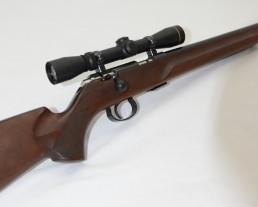Firearms Analysis
Lessons From Not Operators
1. Research is key
Firearms - Before buying anything firearms related, research it in detail. Read reviews, research the ammo ballistics, check out the competition. Know how it works, how to take it apart, and how it shoots. Don’t buy into the hype that it’s ‘mil-spec’ or made for DEVGRU or was used by the SAS. Military contracts are cheap and lowest bidder and serve only as the lowest standard of form and function. You want to be sure you’re buying the best tool for your purposes, and you don’t want any surprises. Make sure you research prices and market fluctuations as well, and be on the lookout for deals to save yourself some money.
Technology - Before buying any device, research it. Read reviews, research specifications, licenses, hardware, build quality, software, and check out the competition. Know how it works, how to take it apart if possible, and what the benefits/disadvantages are. As with the above, don’t buy into the hype and ecstatic promises; benchmarks and independent verification are the most important factors. You want to be sure you’re buying the best tool for your purposes, and you don’t want any surprises. Make sure you research prices and next generation release dates as well, and be on the lookout for deals to save yourself some money.
2. Save up for what you really want
Firearms - If what you want is a $2000 AR15, do not buy a $700 AR15, do not buy a $600 AK, do not buy a $700 Galil. If what you want is a $1700 Nighthawk Custom 1911, do not buy a $1200 Kimber 1911, do not buy a $700 Sig Sauer pistol, do not buy a $600 Glock, or even a $500 CZ. You will not be content with a substitute. If you think it will “tide you over until you can afford it”, you are wrong. It will cost you more money overall to keep “tiding yourself over” than it would to save up and buy your original desire, and you’ll ultimately be much happier with the gun you really want.
Technology - If what you want is a $1500 Digital Storm PC, do not buy a $1000 Dell PC, do not buy a $600 HP PC. If what you want is a $650 Samsung Galaxy S4 phone, do not buy a $480 Motorola Droid Razr M, do not buy a $300 LG Nexus 4 phone. You will not be content with a substitute. Keep in mind your computer/tablet/phone/etc will probably be with you for at least a few years. Do not buy something mediocre and expect to be happy with it for 2 years, or even expect it to last that amount of time. Spend the extra money because you will be happier with the end result. $700 spent on a device you won’t enjoy is $700 you’ve thrown away, $1500 spent on a device you’ll love is $1500 you’ve spent wisely. If you can’t afford it, save for it, don’t compromise. While you are saving, be sure to keep an eye on the news of what’s coming for the next generation: a vast majority of technology is refreshed in yearly periods, with new models and improvements being released constantly and consistently. Though you may not have the money now for what looks like the best thing, a greater, better thing is usually on its way.
3. Focus your spending on what will provide the most value
Firearms - This means your money is better spent buying more ammo than buying more firearms. Shoot the guns you have and become proficient. Put in the time and the money to master the guns you have rather than to expand your collection. Buying more guns will not improve your accuracy, precision, or speed, but buying practice ammo and a shot timer will. Feel free to diversify once you’ve sufficiently mastered what you have, it’ll be a well deserved reward. However, do not neglect those skills, buying a new gun doesn’t mean you can stop practicing with your old ones. This also means you should both select and put more money into a primary firearm. A better sight on your one rifle is worth more to you than having two rifles with poor sights.
Technology - This means your money is better spent on your primary computer/device. Having a variety of different computers/devices is great, but if you insist on spreading your cash around, you’ll end up with 10 bargain bin devices rather than 1 or 2 truly spectacular ones. Your primary device is the one that will get the most use, make sure it gets the attention and upgrades it deserves.
4. Specialize
Firearms - Unlike Alton Brown’s advice on unitasker tools, purchasing a firearm that does one thing well is a better idea than trying to find something that does everything all at once. This means that you want to put together an awesome setup that does one thing and does it very well. There’s been a recent craze on a buzzword termed the “Jack” rifle, short for “Jack of All Trades”, which is a noble goal in the high level view but if you can afford to spend money building a boutique ‘do everything’ rifle, you have the money to define specific roles you want from a certain set of firearms and define purchases therein. Furthermore, attempting to use any individual firearm to accomplish two roles on either extreme end of the engagement spectrum is asinine, and you’ll only be met with sorrow in attempting to do so.
Technology - Buy devices that will best serve the purposes you plan on using them for. For example, if you plan on taking pictures that need to look professional, do not rely on your cell phone’s camera. Buy a dedicated camera that will get the job done. If you need a high performance computer that can also play games as well as a portable computer to take with you daily, do not buy a “gaming laptop” believing that it will kill two birds with one stone, build yourself a high end desktop PC, and buy yourself a decently portable laptop. An “in between” device will end up being something that can do one or the other, but won’t do either one very well. Buy the device that best fits the purpose you have for it, avoid compromising on a jack of all trades, because you will be unhappy and unproductive with the result.

